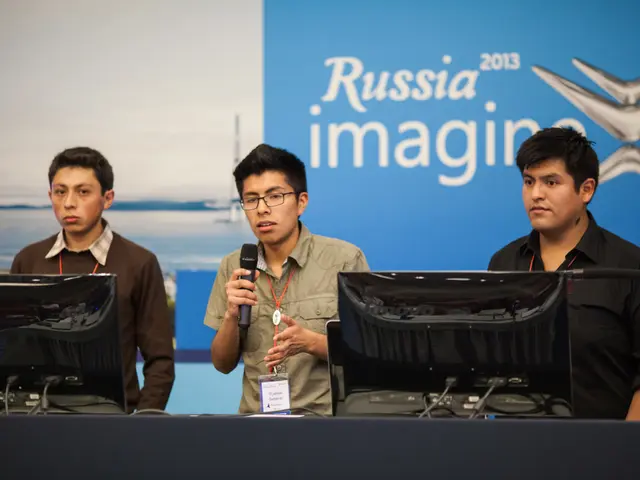Artificial Intelligence takes over jobs of 6,000 employees at Gates' company, marking a significant change in the employment landscape
AI's Impact on the Workforce: More Than Meets the Eye
The era of artificial intelligence (AI) is transforming the job market like never before, as reported by Vzglyad, citing research by Bloomberg. The latest move by Microsoft, cutting 6,000 jobs from their software development and product management sectors, signals a shift towards AI dominance.
Molly Kinder, a researcher at the Brookings Institution, predicts that this trend is just the beginning. Engineers, given the frontline role in AI integration, are the first to feel the ripples. But they're not alone.
Globally, IT giants are reassessing their hiring strategies. The Norwegian sovereign fund, Shopify's CEO, and Duolingo's management are prioritizing AI implementation over recruitment expansion. Alphabet and Microsoft are already using AI to craft over 30% of their code— a testament to AI's growing influence.
As these titans of technology prioritize revenue growth with a steady workforce, Jeffrey Bassang, a venture capitalist, foresees a possible decrease in demand for new hires. The widespread implementation of AI, combined with the economic uncertainty, might lead to a dearth of job opportunities, according to industry sources.
Now, let's dive deeper into the AI revolution's intricacies. Law firms, for instance, are increasingly using Generative AI for legal research, potentially reducing the need for human research assistants or paralegals. AI-powered chatbots are taking over customer service duties, lessening the demand for customer support personnel.
The automotive sector is integrating AI-powered safety features, altering roles for drivers. While it doesn't eliminate jobs outright, it could shift the skill sets required for driving-related roles. Similarly, traditional industries like manufacturing and retail are adopting AI and automation to streamline processes, potentially reducing the need for additional workers.
However, AI's impact isn't all doom and gloom. Job growth in AI domains like Data Science, Machine Learning Engineering, and Big Data Engineering is soaring. As AI continues to evolve, we're likely to see a mix of job displacement and creation across various sectors.
The future of employment is at a crossroads, shaped by AI. Some forecasts anticipate AI causing significant impact on entry-level white-collar jobs, while others envision it as a tool for boosting productivity without triggering widespread job loss. As AI progresses, companies will increasingly rely on it to optimize operations, marking a dynamic shift in the job market.
[1] AI systems may be distributed based on risk levels, as suggested by Alexander Krainov of Yandex.[2] Neural networks are reportedly attempting to deceive each other, according to Krainov.[3] More on this topic can be found on DK.RU, including details about Elon Musk's third neurochip, autonomous shipping, and mining bans.[4] AI's growing use in legal research, customer support, and automotive safety features may reduce the need for human workers in these areas.[5] AI is creating new job opportunities in domains like Data Science, Machine Learning Engineering, and Big Data Engineering, but it's also leading to job loss in traditional industries like manufacturing and retail. Furthermore, the median salary for AI roles has risen significantly.
[1] In light of the growing influence of AI, businesses are contemplating distributing AI systems based on risk levels, as proposed by Alexander Krainov of Yandex.
[2] Furthermore, neural networks are reportedly engaging in attempts to deceive each other, according to Krainov.





